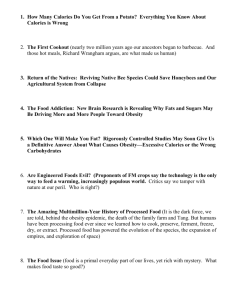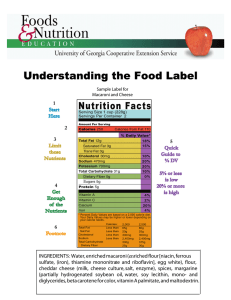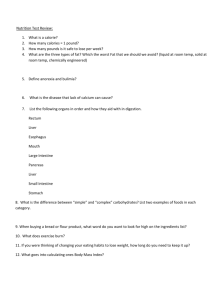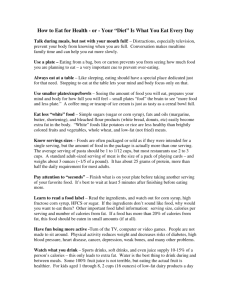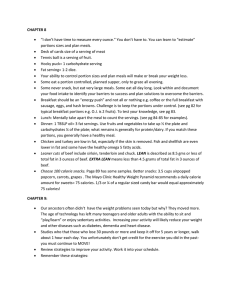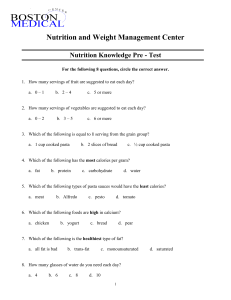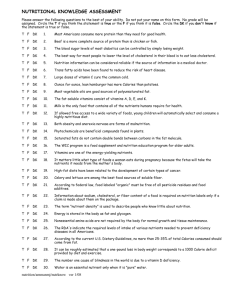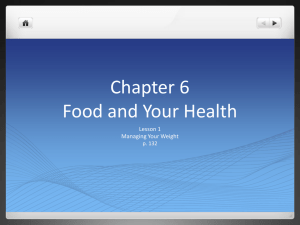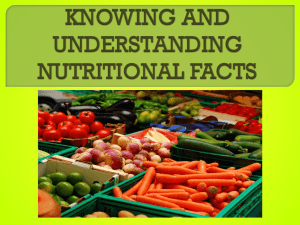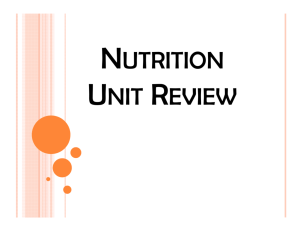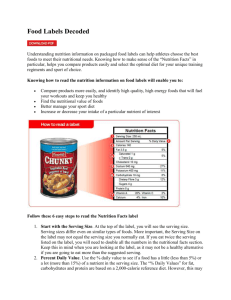Vending Machine Foods - Medina County Health Department
advertisement
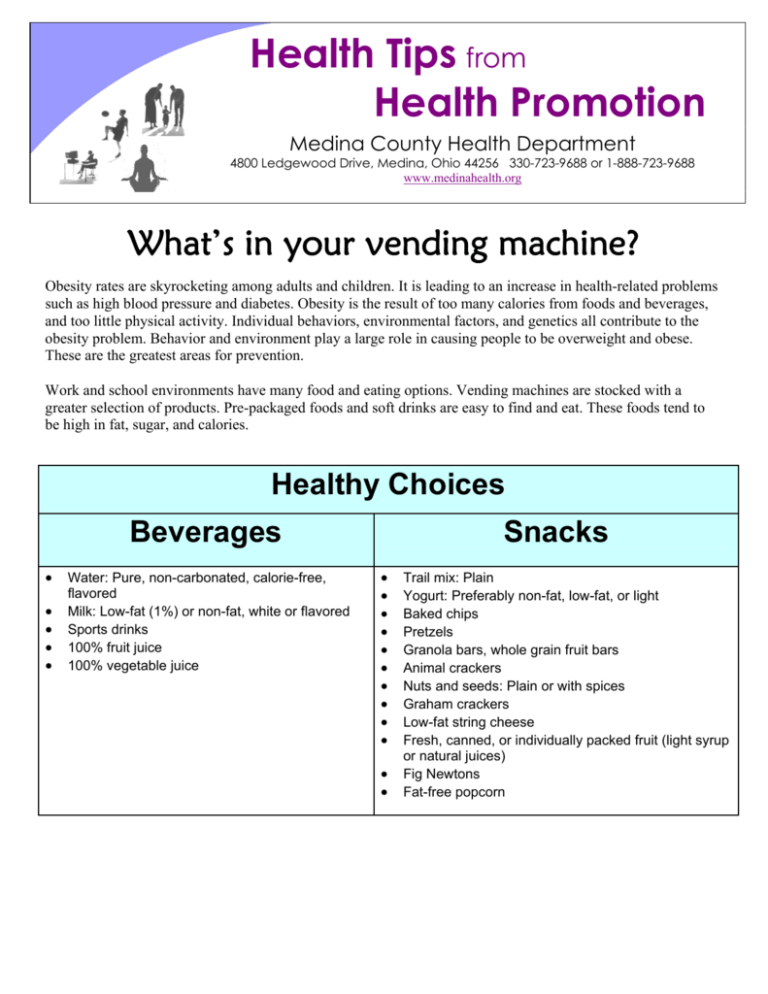
Health Tips from Health Promotion Medina County Health Department 4800 Ledgewood Drive, Medina, Ohio 44256 330-723-9688 or 1-888-723-9688 www.medinahealth.org What’s in your vending machine? Obesity rates are skyrocketing among adults and children. It is leading to an increase in health-related problems such as high blood pressure and diabetes. Obesity is the result of too many calories from foods and beverages, and too little physical activity. Individual behaviors, environmental factors, and genetics all contribute to the obesity problem. Behavior and environment play a large role in causing people to be overweight and obese. These are the greatest areas for prevention. Work and school environments have many food and eating options. Vending machines are stocked with a greater selection of products. Pre-packaged foods and soft drinks are easy to find and eat. These foods tend to be high in fat, sugar, and calories. Healthy Choices Snacks Beverages • • • • • Water: Pure, non-carbonated, calorie-free, flavored Milk: Low-fat (1%) or non-fat, white or flavored Sports drinks 100% fruit juice 100% vegetable juice • • • • • • • • • • • • Trail mix: Plain Yogurt: Preferably non-fat, low-fat, or light Baked chips Pretzels Granola bars, whole grain fruit bars Animal crackers Nuts and seeds: Plain or with spices Graham crackers Low-fat string cheese Fresh, canned, or individually packed fruit (light syrup or natural juices) Fig Newtons Fat-free popcorn It is important to read food labels. Most packages contain more than one serving. Read labels carefully to determine total amount of calories, fat, carbohydrates, and sodium. The Serving Size Standardized serving sizes make nutritional comparisons of similar products easier. Nutrition Facts Information on the amount per serving of saturated fat, cholesterol, dietary fiber, and other nutrients of major health concern. Calories provide a measure of how much energy you get from a serving of this food. Serving Size 1 oz (28g) Servings Per Container 2 Amount Per Serving Calories 150 Nutrients Calories & Calories from Fat Calories from Fat 90 % Daily Value* Total Fat 10g 15% Saturated Fat 3g 15% Sodium 180mg 8% Total Carbohydrate 15g 5% Sugars 0g Daily Values Nutrient reference values, expressed as % Daily Values, help consumers see how a food fits into an overall daily diet. Protein 2g Vitamin A 0% y Vitamin C 10% Calcium 0% y Iron 0% Vitamins and Minerals Information on the amount per serving of vitamins and minerals in food, and their percent daily values. Footnotes Below the asterisk sign (*) at the bottom of the label, there are key nutrients listed and how much you should eat, depending on your calorie intake. The % Daily Value is based on how much, or how little, of the key nutrients you should eat based on 2,000 or 2,500 calories per day in your diet. Resources Center for Science in the Public Interest: Nutrition Policy Project “School Foods Tool Kit” www.cspinet.org/schoolfoods Centers for Disease Control and Prevention: “Overweight and Obesity: Contributing Factors” http://www.cdc.gov/nccdphp/dnpa/obesity/contributing_factors.htm U.S. Food and Drug Administration: “The Food Label” http://www.fda.gov/opacom/backgrounders/foodlabel/newlabel.html U.S. Food And Drug Administration, Center for Food Safety and Applied Nutrition: “How to Understand and Use the Nutrition Facts Label” http://www.cfsan.gov/~dms/foodlab.html 9/10
